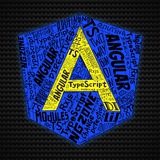📄 Angular Micro Frontend: Module Federation in 6 steps
#angular #ModuleFederation
Module Federation is a powerful feature provided by Webpack that enables the implementation of Micro Frontends in Angular. It allows you to dynamically load and integrate remote Angular modules (Micro Frontends) into a main application shell.
Module Federation handles the dynamic loading and sharing of modules, including their dependencies, at runtime. It enables applications to share code and resources, reducing duplication and improving the overall performance and development experience.
✅ Article Link: https://sagarsnath.medium.com/angular-micro-frontend-module-federation-5bc5638c963f
#angular #ModuleFederation
Module Federation is a powerful feature provided by Webpack that enables the implementation of Micro Frontends in Angular. It allows you to dynamically load and integrate remote Angular modules (Micro Frontends) into a main application shell.
Module Federation handles the dynamic loading and sharing of modules, including their dependencies, at runtime. It enables applications to share code and resources, reducing duplication and improving the overall performance and development experience.
✅ Article Link: https://sagarsnath.medium.com/angular-micro-frontend-module-federation-5bc5638c963f
👍2
#angular #moduleFederation
What is micro-frontend ?
Micro-frontends are a way to break down a large frontend application into smaller, independently deployable modules, similar to microservices on the backend. Angular micro-frontends use Webpack 5’s Module Federation feature to enable this architecture. Module Federation allows multiple teams to build and deploy features in isolation while composing them together at runtime.
Why Micro-Frontends?
Micro-frontends bring several benefits to modern web development:
— Independent Deployment: Teams can build, test, and deploy individual parts of the frontend independently.
— Better Scalability: Teams can work on their domain-specific features without interference from other teams.
— Technology Agnostic: Different micro-frontends can use different frameworks.
What is Module Federation?
Module Federation is a feature in Webpack 5 that allows multiple applications to share code or load remote code at runtime. This is especially useful for micro-frontends, as it allows one Angular application to load modules from another application seamlessly.
How to Implement Angular Micro-Frontends Using Module Federation
We will break the setup into two parts:
— Host Application: The main shell that loads different micro-frontends.
— Remote Applications: Individual Angular micro-frontend apps that are federated into the host.
✅ Article link
Please open Telegram to view this post
VIEW IN TELEGRAM
Please open Telegram to view this post
VIEW IN TELEGRAM
#angular #moduleFederation
✅ Article Link
Please open Telegram to view this post
VIEW IN TELEGRAM
Please open Telegram to view this post
VIEW IN TELEGRAM
👍5
Please open Telegram to view this post
VIEW IN TELEGRAM
Please open Telegram to view this post
VIEW IN TELEGRAM
👍2
